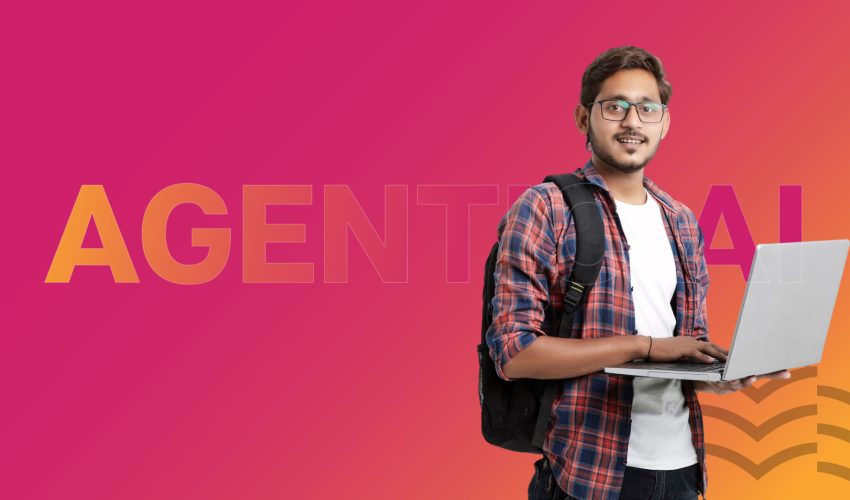Production-Grade GenAI Agents Program

Get unlimited access to all learning content and premium assets Membership Pro
Professional Training for Experienced Developers
Become the engineer every company is hiring for — a Production-Grade AI Agent Developer.
This 16-week, project-driven program transforms experienced software developers into AI agent architects capable of automating complex workflows and deploying intelligent systems at scale.
Designed by industry practitioners, this course focuses on real-world implementation, ROI-driven design, and enterprise-grade deployment of GenAI systems — not just theory.
Program Overview
This 16-week intensive program combines live instruction, hands-on projects, and industry mentorship to help you design, deploy, and scale enterprise-grade AI agents.
You’ll graduate as a Certified Production AI Agent Developer (CPAA) — equipped with skills used by engineers at OpenAI, Anthropic, and Google DeepMind.
Program Highlights
Duration: 16 Weeks | 160 Hours
Format: Live + Self-Paced Labs + Team Projects
Skill Level: Intermediate to Advanced
Class Size: 25–30 Learners per Cohort
Certificate: Certified Production AI Agent Developer (CPAA)
Curriculum Highlights
PHASE 1: FOUNDATIONS (Weeks 1–4)
Master the fundamentals of GenAI systems and agent design.
Week 1: GenAI & LLM Foundations
Understanding LLMs (GPT, Claude, Gemini)
Tokenization, cost optimization, and benchmarking
API integration and model comparisons
Lab: Build a model comparison dashboard
Week 2: Advanced Prompt Engineering
Structured prompts and JSON mode
Chain-of-thought and reflection prompts
Injection prevention and prompt security
Mini Project: Smart Email Assistant
Week 3: Agent Design Patterns
ReAct and Plan-and-Execute patterns
Reflection and self-correction loops
Error handling and retry mechanisms
Lab: Build three unique agent designs
Week 4: Function Calling & Tool Integration
- Function schema design and execution
- Tool orchestration and API integration
- Parallel function execution
Mini Project: Research Assistant Agent
PHASE 2: INTERMEDIATE SYSTEMS (Weeks 5–10)
Move from individual agents to interconnected, production-ready systems.
Week 5: Agent Frameworks (LangChain, LlamaIndex)
Chains, memory, and tools in LangChain
Data-centric agents with LlamaIndex
LangGraph and CrewAI overview
Lab: Migrate a custom agent into frameworks
Week 6: Memory Systems & Context Management
Short-term, long-term, episodic memory
Vector databases: Pinecone, Weaviate, Chroma
Context window optimization
Mini Project: Support Agent with Memory
Week 7: RAG (Retrieval Augmented Generation)
Architecture, document chunking, and hybrid search
Reranking with cross-encoders
Evaluation of RAG pipelines
Lab: Enterprise Knowledge Base Agent
Week 8: Planning & Reasoning Agents
Hierarchical task decomposition
Tree-of-Thought reasoning and self-consistency
Reflexion: Agents that self-correct
Mini Project: Research Paper Generator Agent
Week 9: Multi-Agent Systems & Collaboration
Centralized vs decentralized multi-agent models
Role-based orchestration (Manager/Worker)
Communication protocols and shared memory
Lab: Simulated Dev Team with 5+ Agents
Week 10: Testing & Observability
- Test frameworks for agents
- Tracing and visualization with LangSmith
- Logging, CI/CD, and automated monitoring
Lab: End-to-End Testing Suite
PHASE 3: ADVANCED PRODUCTION (Weeks 11–14)
Deploy secure, optimized, and scalable agent systems.
Week 11: Security & Guardrails
Prompt injection prevention
Data redaction and secret management
Compliance (GDPR, SOC2) and ethical AI
Lab: Security Audit of Previous Projects
Week 12: Cloud Deployment & Infrastructure
Deploying agents on AWS, GCP, Azure
Docker, Terraform, and load balancing
API Gateways and Infrastructure as Code
Lab: Deploy 3 Agents to Production
Week 13: Performance Optimization
Latency analysis and caching
Async execution and streaming
Token optimization and cost management
Mini Project: High-Performance Agent API
Week 14: Agent Evaluation & ROI Analysis
- Evaluation metrics: coherence, accuracy, relevance
- A/B testing and KPI alignment
- ROI model creation for automation projects
Lab: Business ROI Report + Presentation
PHASE 4: CAPSTONE & SPECIALIZATION (Weeks 15–16)
Apply everything you’ve learned in a full-scale enterprise project.
Choose One Capstone Track
Customer Support Automation
RAG, CRM integration, sentiment analysis
Data Analysis Platform
NL-to-SQL queries, dashboards, insights
DevOps Agent Suite
Incident detection, log analysis, remediation
Content Generation & Marketing Suite
SEO and variant testing automation
Sales Intelligence Platform
Lead scoring, CRM enrichment, competitive analysis
Capstone Requirements
3+ Agents, 5+ Tools, Memory + RAG Integration
Full Deployment with Monitoring & Docs
Live Demo & Industry Panel Review
Technology Stack
Languages: Python, JavaScript
LLMs: GPT-4, Claude 3.5, Gemini, Llama 3
Frameworks: LangChain, LlamaIndex, CrewAI, Haystack
Databases: Pinecone, Weaviate, Chroma, PostgreSQL
Infra & DevOps: Docker, Terraform, GitHub Actions, AWS Lambda
Monitoring: LangSmith, OpenTelemetry, Grafana
Security: Vault, LlamaGuard
Evaluation & Certification
Assessment Breakdown
Weekly Labs — 25%
Mini Projects — 25%
Capstone — 35%
Quizzes — 10%
Peer Evaluation — 5%
Certification:
🎓 Certified Production AI Agent Developer (CPAA)
An industry-recognized credential backed by 10+ production projects and portfolio documentation.
Program Format:
- 70% Hands-On Practice: Labs, coding exercises, live projects
- 20% Collaborative Learning: Peer reviews, team-based builds
- 10% Core Theory: Conceptual understanding that supports practical work
Career Impact:
10+ production-grade projects built
87% deploy AI agents within 3 months of graduation
$18K average salary increase
6 months post-program career support
Our Student Success Stories
Course Features
- Duration 120 hours
- Activities IT
- Class Sizes 50
- Available Seats 50
Get unlimited access to all learning content and premium assets Membership Pro
“GenAIversity turned my basics into real skills.”
In college, I only learned theory. At GenAIversity, I built end-to-end AI apps, mastered advanced coding, and gained confidence to face the job market.
— Jaya Shree, GenAIversity Student
You might be interested in
-
In-person class
-
Intermediate
-
SASI ICON Building, Madhapur Metro Station, Road No 36 & 37, Jubilee Hills, Telangana 500033
-
273 Students
-
60 lessons
-
In-person class
-
Intermediate
-
SASI ICON Building, Madhapur Metro Station, Road No 36 & 37, Jubilee Hills, Telangana 500033
-
273 Students
-
60 lessons
-
In-person class
-
Intermediate
-
SASI ICON Building, Madhapur Metro Station, Road No 36 & 37, Jubilee Hills, Telangana 500033
-
273 Students
-
60 lessons
-
In-person class
-
Intermediate
-
SASI ICON Building, Madhapur Metro Station, Road No 36 & 37, Jubilee Hills, Telangana 500033
-
273 Students
-
60 lessons
Sign up to receive our latest updates
Get in touch
Address

